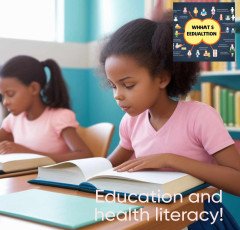
Education and health literacy

Education is the process of acquiring knowledge, skills, attitudes, beliefs, and habits through a variety of learning experiences, such as formal instruction, on-the-job training, or hands-on learning.
It is a continuous process that enables people to reach their full potential, widen their horizons, and improve society. Science, math, social studies, languages, the arts, and physical education are just a few of the many subjects that make up education.
On the other side, health literacy refers to a person's capacity to comprehend and apply health information in order to make wise decisions regarding their health. It encompasses the ability to successfully communicate with healthcare providers and read, interpret, and evaluate health-related documents. Because it enables people to take an active role in their health, health literacy is crucial for promoting health and preventing disease.
Since education is so important in improving health literacy, there is a connection between education and health literacy. Because they are better able to comprehend health information and make knowledgeable decisions about their health, people with higher levels of education are more likely to have better health outcomes. As kids who are healthy and aware about their health are more likely to thrive academically, boosting health literacy can also result in better educational outcomes.
Education can also affect attitudes and actions related to health. For instance, someone who has learned about the advantages of consistent exercise and a good diet is more likely to adopt these behaviors than someone who has not. Similar to how excessive alcohol intake and tobacco use can be harmful, these dangerous habits can be decreased through education.
Poor health literacy and education can have detrimental effects on both individuals and society.
Poor health outcomes, such as higher healthcare expenses, drug mistakes, and hospitalization rates, can result from low health literacy. Similar to how a lack of education can restrict employment options and economic mobility, lower income levels and worse health outcomes are the results.
Promoting health literacy and education at all societal levels is crucial for addressing these problems. Access to high-quality education and health information is one aspect of this, as are the promotion of healthy habits and lifestyles and the development of policies and programs that support education and health literacy. We can aid people in making wise decisions about their health and well-being by fostering education and health literacy, which will improve health outcomes and create a more just society.
There are numerous strategies to advance health literacy and education. One way is to make quality education and health information available to everyone, including through community outreach initiatives, public health campaigns, and healthcare practitioners. Information that is accessible to persons with varying learning needs and abilities can be provided in a variety of languages and forms.
Enhancing the abilities of educators and healthcare professionals is another strategy to enhance health literacy and education. This can include training initiatives that emphasize clear communication, health literacy evaluation, and the use of resources with an emphasis on health literacy.
At both the national and local levels, policies and programs that support education and health literacy can be created. This can involve funding for health and education projects, assistance with research on efficient health education and communication, and initiatives that support healthy behaviors and lifestyles.
A healthy and just society depends on both education and health literacy.
We can empower people to make knowledgeable decisions about their health and well-being, lessen health inequities, and enhance health outcomes for all through encouraging education and health literacy.
Additionally, health literacy and education are crucial for the management and prevention of chronic diseases. To effectively treat chronic disorders like diabetes, heart disease, and cancer, people must have a high degree of health literacy. This entails being aware of their diagnosis, available therapies, medication administration, and self-care practices.
By encouraging healthy habits and lifestyles, education can also aid in the prevention of chronic diseases. This may involve promoting the advantages of exercise, good diet, and cutting back on alcohol and tobacco usage. We can contribute to the prevention of chronic diseases and enhance health outcomes by giving people the information and abilities they need to make healthy decisions.
For the purpose of promoting health and preventing disease, education and health literacy are crucial. We can create a healthier and more equitable society by giving people access to high-quality education and health information, enhancing the knowledge of educators and healthcare professionals, and implementing policies and programs that encourage education and health literacy.
To acknowledge the impact social determinants of health have on health literacy and education.
The social and economic factors that affect health outcomes, such as access to healthcare, work, housing, and education, are known as social determinants of health (SDOH). Socially and economically disadvantaged people may have less access to education and health information, which can result in lower health literacy levels and worse health outcomes.
Addressing socioeconomic determinants of health is crucial for advancing health literacy and education. Among other social determinants of health, this can involve policies and initiatives that deal with issues including economic inequality, housing insecurity, and food insecurity. We can contribute to the promotion of education and health literacy and enhance health outcomes for all by establishing more equitable conditions for all people.
A healthy and just society depends on both education and health literacy. We can empower people to make knowledgeable decisions about their health and well-being, lessen health inequities, and enhance health outcomes for all through encouraging education and health literacy. Promoting education and health literacy as well as building a more equal society depend on addressing social determinants of health.
To remember that education and health literacy are continual processes that demand ongoing care and attention. People must continuously upgrade their knowledge and skills to make decisions about their health when new information and technology become available.
To keep funding education and health literacy initiatives at all levels, including in schools, medical facilities, and the general public. This can involve offering ongoing education and training opportunities for healthcare professionals and educators, producing and distributing materials that are user-friendly for people with low health literacy levels, and promoting policies and programs that support healthy behaviors and lifestyles.
A healthy and just society depends on both education and health literacy.
We can empower people to make knowledgeable decisions about their health and well-being, lessen health inequities, and enhance health outcomes for all through encouraging education and health literacy. For the ongoing difficulties of improving health and preventing disease, continued investment in education and health literacy is crucial.
To acknowledge the relationship and mutual support between health literacy and education. Education can improve health outcomes, and greater health can result in more people pursuing higher education. The term "health-education" may be used to describe this relationship.
Healthy kids are more likely to go to school on a regular basis and do better in class. Similar to this, educated people are more likely to possess the knowledge and abilities necessary to make wise decisions about their health and successfully navigate the healthcare system.
For a good cycle of health and educational outcomes, investing in both education and health is crucial. This can include programs that address social determinants of health and educational attainment as well as activities that encourage healthy behaviors and lifestyles among students.
A healthy and equitable society must include both education and health literacy.
We can empower people to make knowledgeable decisions about their health and well-being, lessen health inequities, and enhance health outcomes for all through encouraging education and health literacy. The secret to starting a good cycle of health and educational outcomes is to invest in both education and health.
Should be aware that education and health literacy have advantages that extend well beyond the level of the individual. High levels of health literacy and education increase the likelihood that a society will be fruitful, prosperous, and resilient. Better health can save healthcare expenses and boost productivity, while education can enhance economic prospects and improve employment results.
Social cohesiveness and democratic engagement can both be facilitated by education and health literacy. People are more likely to participate in civic life and support policies and initiatives that benefit their communities if they have the information and abilities to make wise decisions about their health and wellbeing.
It is important for social and economic progress as well as individual well-being to invest in education and health literacy. We can build a more just, successful, and resilient society by boosting education and health literacy.
A healthy, just, and wealthy society requires both education and health literacy.
By making investments in education and health literacy, we may expand economic possibilities, foster social cohesion, minimize health inequities, and increase democratic participation by enabling people to make educated decisions about their health and well-being.
Access to high-quality education and health information is crucial for fostering health literacy and education at the individual level. This may involve programs like health education lessons taught in schools, community-based health education initiatives, and easily available and comprehendible health information sources.
Additionally, educators and healthcare professionals need to be trained in how to effectively convey health information to students and patients with various degrees of health literacy. To increase understanding, this can involve employing simple language, visual aids, and interactive teaching techniques.
Policies and initiatives that address social determinants of health and encourage healthy habits and lifestyles can be implemented at the community level. For instance, programs that provide access to wholesome foods, secure recreational areas, and reasonably priced healthcare can enhance health outcomes and advance health literacy.
Investments in education and healthcare systems can broaden the scope of education and health literacy at the policy level.
Better health outcomes and higher educational attainment can result from policies that expand access to high-quality education and healthcare, for instance, while policies that address socioeconomic determinants of health can encourage health literacy and lessen health inequities.
A multifaceted strategy that takes into account issues at the individual, community, and policy levels is needed to promote education and health literacy. We can develop a society that is capable of making decisions regarding its own health and well-being by making investments in healthcare and education systems, supporting healthy habits and lifestyles, and addressing social determinants of health.
Technology has a significant potential to advance health and educational literacy. People can now get health information from a wide range of sources, including websites, mobile apps, and social media, thanks to the expansion of digital information availability.
To make certain that digital health information is trustworthy, correct, and simple to grasp, particularly for people with low health literacy. Digital tools and resources that are geared toward promoting health literacy can aid users in making more educated decisions regarding their health and utilizing the healthcare system.
Healthcare professionals and educators can benefit from improved education and training thanks to technology.
For instance, online training courses and webinars can assist educators and healthcare professionals in gaining the knowledge and abilities necessary to successfully disseminate health information and advance health literacy.
Through digital health interventions like telemedicine, remote monitoring, and mobile health apps, technology can be leveraged to enhance health outcomes and decrease health disparities. These initiatives can improve people's access to healthcare services, encourage healthy habits, and give them the resources they need to take control of their health and wellbeing.
Technology has the potential to be a potent instrument for advancing health and educational literacy. We can create a society where people are empowered to make knowledgeable decisions about their health and well-being by offering trustworthy, accurate, and simple-to-understand health information, improving education and training for healthcare practitioners and educators, and encouraging digital health treatments.
To understand that encouraging health and educational literacy is a continuous process that calls for consistent effort and cross-sector cooperation.
Access to health information and education is important, but we also need to address the underlying socioeconomic determinants of health and encourage healthy habits and lifestyles.
Advancing education and health literacy necessitates a multi-sectoral strategy that entails cooperation among healthcare professionals, educators, legislators, and community leaders. Together, we can create and put into action efficient programs that advance health literacy and education while reducing health inequities.
A healthy and equitable society must include both education and health literacy. We can build a society where people are empowered to make decisions about their health and wellbeing by promoting education and health literacy at the individual, community, and policy levels, utilizing technology to improve education and health information, and working across sectors to address social determinants of health and promote healthy behaviors.
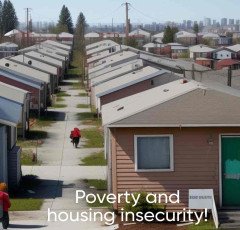
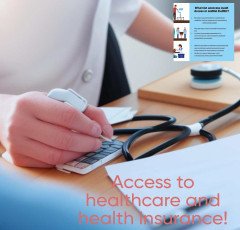
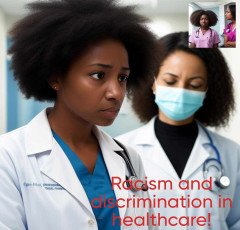

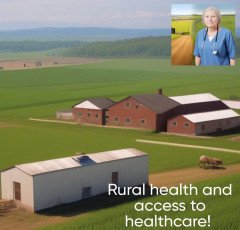
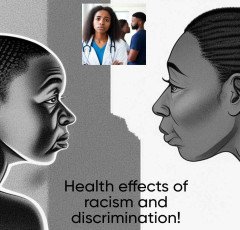
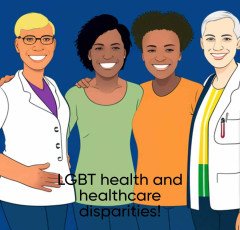
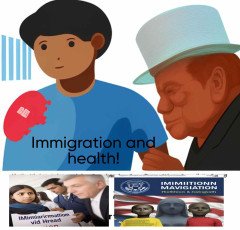


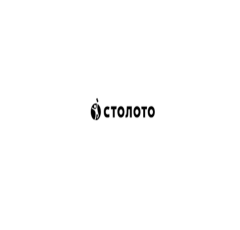
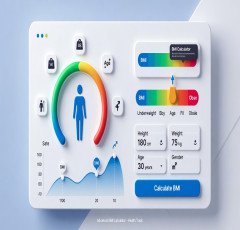
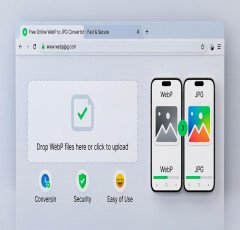


 ASPINAL LONDON
ASPINAL LONDON  BEST SELLER TOP10
BEST SELLER TOP10  Best Selling Books
Best Selling Books  Unlimited access to classes on illustration, photography, design, film, music
Unlimited access to classes on illustration, photography, design, film, music  Smart Doorbell
Smart Doorbell  TitTok Revolution
TitTok Revolution  Unreal Engine 5 For Beginners Learn The Basics Of Virtual Production
Unreal Engine 5 For Beginners Learn The Basics Of Virtual Production  Amazon Best Selling Products
Amazon Best Selling Products  NordLocker
NordLocker  Sennheiser
Sennheiser  Hello Theme
Hello Theme  NordPass
NordPass  1150+Trendy kids coloring pages Bundle
1150+Trendy kids coloring pages Bundle  Hot Bags For Pain Relief
Hot Bags For Pain Relief  Graphics & Design
Graphics & Design  Men Clothing
Men Clothing  Artificial Intelligence
Artificial Intelligence  Top Rated From Amazon
Top Rated From Amazon  Creative Brief For Video Shoot
Creative Brief For Video Shoot  SEO Checklist
SEO Checklist  SOFAS
SOFAS  Best Sellers On Amazon
Best Sellers On Amazon  ASUS Laptop
ASUS Laptop  Favorite Company (Cuelinks)
Favorite Company (Cuelinks)  Online Marketing
Online Marketing  Best Home Appliances
Best Home Appliances  Online Technology Classes
Online Technology Classes  All Wireless Products
All Wireless Products  Only For The United States
Only For The United States  Best Robotic Vacuum Cleaners
Best Robotic Vacuum Cleaners  The Click Engine
The Click Engine  One World Collection
One World Collection  NordVPN
NordVPN  The Secret Email System
The Secret Email System  RPM 3.0
RPM 3.0  Women Fashion
Women Fashion  Acer Laptop
Acer Laptop  ELECTRONIC ACCESSORIES
ELECTRONIC ACCESSORIES 
















